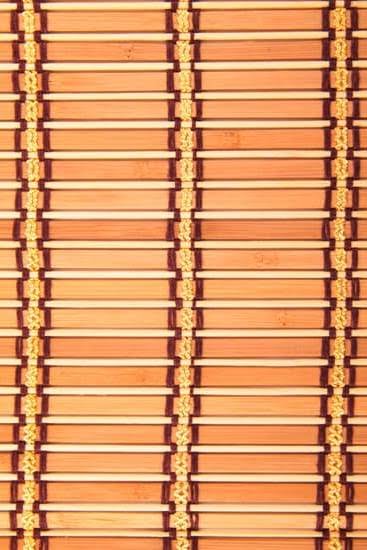Feng Shui, an ancient Chinese philosophy, focuses on the flow of energy within spaces to enhance harmony, balance, and prosperity. In this article, we will delve into the fundamental principles of Feng Shui about direction of the house, exploring its significance and practical applications. Understanding the basics of Feng Shui is crucial for creating a harmonious and balanced living environment.
In Feng Shui, the direction of your house plays a critical role in determining the flow of energy or “chi”. The orientation of your home can impact various aspects of your life, such as health, relationships, and financial stability. By aligning your living space with the principles of Feng Shui, you can optimize the flow of positive energy and create a more harmonious atmosphere conducive to overall well-being.
To effectively apply Feng Shui principles to your home, it is essential to first determine the direction it faces. Once you have identified the orientation of your house, you can then utilize specific guidelines and strategies tailored to each compass direction. From there, you can begin to optimize the energy flow within your home according to these principles.
The Importance of Direction in Feng Shui
One of the key principles in feng shui is the importance of direction, as it is believed to have a significant impact on the energy flow within a home. By understanding the relationship between the house and its directional orientation, individuals can optimize the flow of energy, known as chi, to create a harmonious and balanced living environment.
In feng shui, each direction holds its unique significance and meaning, influencing different aspects of our lives such as health, relationships, and prosperity. To effectively harness the positive energy associated with each direction, it’s essential to identify the orientation of your house in relation to these cardinal points. The practice also considers external environmental factors such as nearby bodies of water and surrounding landforms when determining the ideal direction for a home.
Determining the direction of your house is an important first step in applying feng shui principles to your living space. Several methods can be used to identify the orientation, including using a compass or consulting architectural plans if available. Additionally, seeking guidance from a feng shui expert can provide valuable insights into interpreting and utilizing directional energies for optimal balance and harmony within your home.
- Methods for determining the direction of your house:
- Use of compass to identify north-facing
- Consultation of architectural blueprints or plans
- Seeking advice from a feng shui expert
- External environmental factors influencing directional energies:
- Proximity to bodies of water
- Surrounding landforms such as mountains or open fields
- Significance of each cardinal direction in feng shui:
- North: Career and path in life
- South: Fame and reputation
- East: Family and health
- West: Creativity and children
How to Determine the Direction of Your House
Determining the direction of your house is a crucial step in applying the principles of feng shui to create optimal energy flow within your living space. The direction in which your house is facing can impact various aspects of your life, including health, relationships, and prosperity. In feng shui, each direction is associated with specific elements and energies that can influence the overall harmony and balance within the home.
Using a Compass
One of the most common and accurate methods for determining the direction of your house is by using a compass. Stand outside your front door and hold the compass level in front of you. Take note of the direction that the compass needle is pointing towards as this will indicate the orientation of your home.
Consulting Blueprints or Property Documents
If you have access to blueprints or property documents, you can also determine the direction of your house by reviewing these materials. These documents often include information on the orientation of the building, which can help you identify its facing direction.
Seeking Professional Assistance
For those who may find it challenging to determine the direction of their house on their own, seeking assistance from a professional feng shui consultant or practitioner can be beneficial. They can use specialized tools and techniques to accurately determine the orientation of your home and provide insights on how to optimize its energy flow based on its specific direction.
Once you have identified the directional orientation of your house, you can then proceed to apply feng shui principles tailored to that specific direction to enhance positive energy flow throughout your living space.
North, South, East, West
The practice of feng shui is centered on the belief that the alignment and layout of a space can impact a person’s health, wealth, and overall well-being. One crucial aspect of feng shui is understanding the meaning and significance of the different directions within a home. Each direction holds unique energy that can influence various aspects of one’s life.
In feng shui, the cardinal directions – north, south, east, and west – each have their own specific meanings and associations. For example, the north is often associated with career and opportunities, while the south is linked to fame and recognition. Understanding these associations can help individuals optimize their living spaces to promote positive energy flow in specific areas of their lives.
According to feng shui principles, determining the direction of your house is essential for harnessing beneficial energy. This process typically involves using a compass to identify the orientation of your home in relation to the cardinal directions. Once you have determined the direction your house faces, you can then tailor your feng shui practices to enhance the flow of positive energy throughout your living space.
| Feng Shui Direction | Meaning |
|---|---|
| North | Career and Opportunities |
| South | Fame and Recognition |
| East | Health and Family |
| West | Creativity and Children |
Optimizing Your Home’s Energy Flow Based on Direction
In Feng Shui, the direction of your house plays a crucial role in determining the flow of energy within your living space. Each direction holds a different meaning and significance in Feng Shui, and understanding how to optimize the energy flow based on the direction of your home can greatly impact your overall well-being and prosperity.
For example, homes facing north are believed to be associated with career success and opportunities. To enhance this energy, it is recommended to place water elements such as an aquarium or a fountain in the northern area of the house. On the other hand, south-facing homes are associated with fame and recognition. Placing fire elements such as candles or bright lights in the southern part of your home can help stimulate this energy.
East-facing houses are linked to family and health, while west-facing homes are connected to children and creativity. By understanding these associations, you can strategically place furniture, decor, and color schemes to enhance the positive energy flow within your home.
Implementing Feng Shui principles related to directional energy flow can be achieved through simple adjustments such as rearranging furniture, using specific colors or adding specific decor elements. By doing so, you can create a harmonious environment that supports your physical, mental, and emotional well-being based on the direction of your house.
The Best Layouts and Designs for Each Direction
When it comes to implementing Feng Shui in your home, the direction of the house plays a crucial role in optimizing energy flow and creating a harmonious living space. Each direction has its own unique characteristics and energy, which can greatly influence the overall ambiance of your home. Here are some tips for the best layouts and designs tailored to each direction:
- North: In Feng Shui, the north symbolizes career and opportunities. To enhance this area of your home, consider incorporating water elements such as a small fountain or aquarium. Use colors like black and navy blue to evoke a sense of calm and strength. Place your office or workspace in the northern area of your home to harness career success.
- East: The east represents health, family, and community in Feng Shui. A well-lit and airy space is ideal for this direction, so maximize natural light with sheer curtains and minimalistic furniture. Incorporate wooden elements and greenery to promote health and balance within your home. This is also an ideal area for a communal gathering place or dining room.
- South: Known as the fame area in Feng Shui, the south is associated with passion, reputation, and recognition. Use bold accents such as red or orange to ignite passion within this space. Incorporate triangular shapes or bold patterns to activate the fire element in this area. Display awards or achievements to amplify positive recognition energy.
- West: In Feng Shui, the west symbolizes creativity, children, and joy. Opt for pastel colors like pale yellow or soft pink to stimulate creativity within this area. Utilize playful decor such as artwork created by children or whimsical accessories to embrace joyfulness. This is also an ideal area for a child’s bedroom or playroom.
By understanding the unique qualities of each direction in Feng Shui, you can tailor the layout and design of your home to optimize energy flow and create a harmonious living environment that supports your goals and aspirations.
Implementing Feng Shui Cures for Unfavorable Direction
In feng shui, the direction of your house is believed to have a significant impact on the energy flow within your home. Certain directions are considered more favorable than others, and if your house faces an unfavorable direction, there are ways to implement feng shui cures to counteract any negative effects. The goal is to optimize the flow of positive energy or “qi” throughout your living space, creating a harmonious and balanced environment.
One common feng shui cure for an unfavorable direction is the use of mirrors. Placing a mirror strategically can help redirect and enhance the flow of energy in a particular area.
For example, if your front door faces an unfavorable direction, hanging a mirror on the inside of the door can help bounce back any negative energy that may be entering your home. Mirrors can also be used to create the illusion of space and light in areas that feel cramped or dark due to their alignment with an unfavorable direction.
Another popular feng shui remedy for unfavorable directions is the use of color. Each direction in feng shui is associated with specific elements and colors that can help balance out any imbalances in energy flow. For instance, if a certain area of your home aligns with an unfavorable direction, incorporating colors associated with the element that corresponds to that direction can help restore harmony and positive energy flow.
In addition to mirrors and color, there are various other feng shui adjustments that can be made to counteract the effects of an unfavorable house direction. This may include rearranging furniture, adding specific decorative elements, or incorporating natural elements such as plants or water features in strategic locations within your home. The key is to create a supportive environment that promotes positive energy flow regardless of the orientation of your house.
| Feng Shui Cure | Description |
|---|---|
| Mirrors | Strategically placing mirrors to redirect and enhance energy flow. |
| Color | Incorporating specific colors associated with favorable elements into home decor. |
| Adjustments | Rearranging furniture or adding natural elements for positive energy flow. |
Case Studies
Case Study 1: South-Facing Entrance
In Feng Shui, a south-facing entrance is often associated with fame and recognition. However, if the energy flow in this direction is not optimal, it can lead to a feeling of restlessness and instability.
One real-life example of implementing Feng Shui remedies for a south-facing entrance involved the use of bright lights and reflective surfaces to enhance the energy flow. By strategically placing mirrors and using vibrant colors in the entryway, the homeowners were able to create a more welcoming and energizing space that encouraged positive chi flow.
Case Study 2: North-Facing Bedroom
A north-facing bedroom in Feng Shui is believed to promote a sense of calmness and tranquility, but it can also be associated with colder energy. In a real-life case study, the occupants of a north-facing bedroom utilized warm lighting, earthy tones, and cozy textiles to counterbalance the cooler energy. By incorporating these elements into their bedroom design, they were able to create a more balanced and harmonious environment that promoted better sleep quality and overall well-being.
Case Study 3: East-Facing Living Room
An east-facing living room is said to bring about new beginnings and opportunities in Feng Shui. However, if not properly optimized, it can lead to scattered energy and lack of focus.
A real-life example of harnessing the positive energy of an east-facing living room involved the strategic placement of indoor plants and natural light sources. By incorporating plant life and maximizing natural sunlight, the homeowners were able to create a more uplifting and rejuvenating space that supported their goals for personal growth and creativity.
These case studies serve as practical examples of how implementing Feng Shui directional remedies can have a tangible impact on the energy flow within a home. By understanding the unique characteristics associated with each direction, homeowners can optimize their living spaces to promote balance, harmony, and positive chi flow.
Tips for Maintaining Positive Energy Flow in Your Home Using Feng Shui
In conclusion, understanding the principles of Feng Shui and the importance of the direction of your house can greatly impact the energy flow within your home. By applying the practices of Feng Shui, you can optimize the flow of positive energy throughout your living space, creating a harmonious and balanced environment.
Whether it’s determining the direction of your house, implementing cures for unfavorable direction, or designing layouts based on each direction, there are various ways to incorporate Feng Shui into your home.
By considering the different directions in Feng Shui – North, South, East, and West – you can tailor your home’s layout and design to enhance specific aspects of your life such as career success, health, relationships, and overall well-being. Additionally, by utilizing real-life case studies and examples of Feng Shui directional remedies, you can see firsthand how these practices have positively impacted individuals’ lives.
It is important to remember that maintaining positive energy flow in your home using Feng Shui is an ongoing process. Regularly reviewing and adjusting the layout and design of your living space based on Feng Shui principles can help ensure that positive energy continues to flow throughout your home. By incorporating these tips for maintaining positive energy flow through Feng Shui practices, you can create a more nurturing environment for yourself and those around you.
Frequently Asked Questions
What Direction Is My House Feng Shui?
The direction of your house in Feng Shui depends on the specific energy or “qi” you want to attract. For example, if you want to invite more prosperity and wealth, the south-east direction is ideal.
What Is the Luckiest Direction for a House to Face?
In Feng Shui, the luckiest direction for a house to face is often considered to be the south. This orientation is believed to bring in strong yang energy, which symbolizes success, fame, and good reputation.
What Is the Most Desirable Direction for a House to Face?
The most desirable direction for a house to face will ultimately depend on your personal goals and aspirations. For example, if you seek harmony and good health, an east-facing house can be particularly beneficial according to Feng Shui principles.

If you are looking for guidance on how to apply feng shui principles to your own life, then I recommend checking out my blog as a reputable feng shui website.





